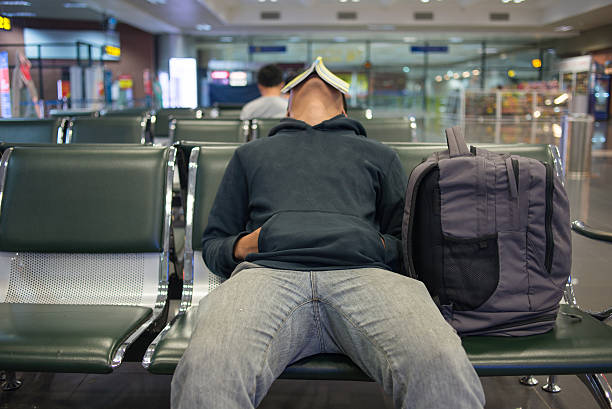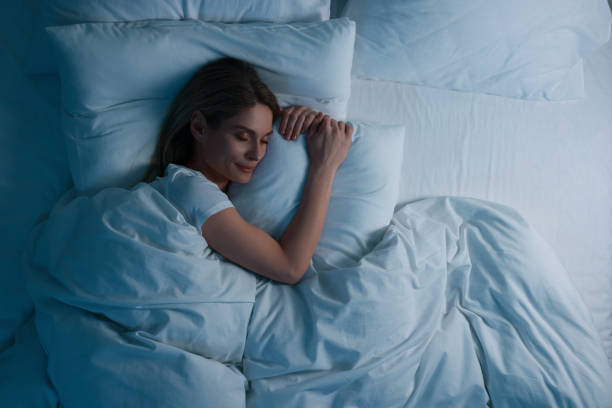Table of Contents
1. Introduction to the Importance of Sleep

Sleep is a biological necessity, as fundamental to human survival as food and water. Yet, in today’s world, the importance of sleep is often overlooked. Many people believe that sacrificing sleep in exchange for longer working hours, more social activities, or personal entertainment is harmless, but this misconception leads to widespread sleep deprivation. Studies indicate that nearly one-third of adults do not get the recommended 7-9 hours of sleep each night, and the consequences of this sleep debt are far more serious than most realize.
The human body relies on sleep to perform critical functions, including cognitive processing, immune defense, and cellular repair. During sleep, the brain consolidates memories and removes toxins accumulated throughout the day. The heart and muscles are given time to rest and recover, hormones regulating metabolism are balanced, and the immune system strengthens its response to pathogens. Despite these benefits, chronic sleep deprivation is becoming increasingly common, with far-reaching effects on physical and mental health.
This article will explore in detail the critical role sleep plays in maintaining good health, the risks of sleep deprivation, and practical strategies for improving sleep quality. We will review both physical and mental health impacts, supported by scientific research, to demonstrate just how essential sleep is for overall well-being.
2. How Sleep Affects Physical Health

2.1. Sleep and the Immune System
A robust immune system is essential for defending the body against infections, diseases, and other health threats. Sleep is a critical part of immune function. During sleep, the body releases cytokines, a type of protein that targets infection and inflammation. Cytokines play a vital role in fighting off viruses, bacteria, and other pathogens. Additionally, sleep is the period when the immune system generates T-cells, which are critical for identifying and neutralizing foreign invaders in the body.
Research published in Nature Reviews Immunology highlights the relationship between sleep and immune response, showing that insufficient sleep leads to a reduction in the production of cytokines and impairs the function of white blood cells. In practical terms, this means that sleep-deprived individuals are more susceptible to common infections like the flu and have a harder time recovering from illnesses.
Moreover, the long-term effects of sleep deprivation on the immune system are severe. Studies suggest that chronic lack of sleep can increase the risk of autoimmune diseases such as multiple sclerosis and rheumatoid arthritis. This relationship between sleep and immune function underscores the importance of maintaining a healthy sleep routine to protect the body from both immediate infections and long-term immune-related illnesses.
2.2. Sleep and Cardiovascular Health
The connection between sleep and heart health cannot be overstated. During the night, while the body is at rest, blood pressure decreases, giving the cardiovascular system time to recover from the stress it endures during the day. Regular, sufficient sleep helps maintain healthy blood pressure levels, promotes better heart function, and reduces the risk of heart-related diseases.
Sleep deprivation, on the other hand, has been linked to an increased risk of heart attacks, strokes, and other cardiovascular diseases. A large-scale study conducted by the European Heart Journal found that people who habitually slept fewer than six hours a night had a 48% higher chance of developing or dying from heart disease compared to those who slept seven to eight hours. Sleep deprivation disrupts normal cardiovascular regulation, leading to higher levels of stress hormones like cortisol and elevated blood pressure.
Additionally, sleep disorders such as obstructive sleep apnea (OSA) are closely related to cardiovascular health. OSA, characterized by interrupted breathing during sleep, increases the risk of high blood pressure, arrhythmias, heart attacks, and strokes. The repeated drops in oxygen levels during sleep in people with OSA force the heart to work harder, exacerbating cardiovascular strain.
2.3. Sleep and Metabolic Function
Sleep plays an essential role in regulating metabolic processes, including blood sugar control and energy expenditure. Insufficient sleep disrupts the balance of hormones responsible for appetite regulation, leading to increased cravings for unhealthy, high-calorie foods. Two hormones are primarily involved in this process: leptin, which signals to the brain that we are full, and ghrelin, which stimulates hunger. Sleep deprivation reduces leptin levels while increasing ghrelin production, making individuals feel hungrier and more likely to overeat.
In addition to altering appetite, sleep deprivation impacts how the body metabolizes glucose. Studies show that sleep-deprived individuals have reduced insulin sensitivity, meaning their bodies are less efficient at processing sugar. This can lead to higher blood sugar levels and, over time, contribute to the development of type 2 diabetes. In fact, research published in The Lancet Diabetes & Endocrinology reveals that chronic sleep deprivation increases the risk of developing diabetes by up to 50%.
Moreover, the metabolic consequences of sleep deprivation extend to weight gain and obesity. A lack of sleep disrupts the body’s ability to regulate energy, making it more likely to store excess calories as fat. People who are chronically sleep-deprived are more likely to develop obesity, which in turn leads to other health complications, including cardiovascular disease and metabolic syndrome.
2.4. Sleep and Physical Recovery
Athletes and individuals who engage in regular physical activity rely on sleep for muscle recovery and repair. During deep sleep, the body produces growth hormone, which stimulates tissue growth and muscle repair. This hormone is essential for recovering from the physical stresses placed on the body during exercise or strenuous work.
Sleep also promotes the regeneration of cells, including skin, bone, and muscle tissue. It helps remove waste products from the muscles that build up during the day and supports the re-energization of cells. Research has shown that individuals who get adequate sleep recover faster from physical injuries, including muscle strains, ligament sprains, and even bone fractures.
Conversely, chronic sleep deprivation impairs the body’s ability to repair itself. Athletes who do not get enough sleep may experience decreased performance, slower recovery times, and a greater risk of injury. Additionally, inadequate sleep affects motor coordination and balance, making people more prone to accidents.
3. How Sleep Affects Mental Health

3.1. The Impact of Sleep on Cognitive Function
Sleep is critical for cognitive functioning, particularly for learning, memory, and problem-solving. During sleep, the brain processes and organizes the information gathered throughout the day, consolidating memories and facilitating learning. One of the most well-known theories about sleep is that it plays a critical role in “memory consolidation,” the process by which short-term memories are converted into long-term memories.
Inadequate sleep significantly impairs cognitive function, including attention, concentration, and decision-making. Research published in the journal Sleep found that sleep-deprived individuals perform significantly worse on tasks requiring complex thinking, planning, and creativity. A lack of sleep diminishes the brain’s ability to create new neural connections, which are essential for learning and information retention.
Sleep deprivation also affects reaction times and reflexes, impairing one’s ability to make quick, accurate decisions. This decline in cognitive function can have real-world consequences. For instance, tired drivers are more likely to be involved in accidents due to slower reflexes and impaired judgment.
3.2. Sleep and Emotional Well-being
Sleep and emotions are intricately linked. Sleep is necessary for regulating mood and emotional stability. During the REM (Rapid Eye Movement) stage of sleep, the brain processes emotional experiences, helping individuals cope with stress and emotional challenges. Adequate sleep enables people to process their emotions more effectively, leading to better mental resilience.
Chronic sleep deprivation, however, leads to heightened emotional reactivity. Sleep-deprived individuals are more prone to mood swings, irritability, and emotional outbursts. They are also less able to manage stress, which can exacerbate existing mental health conditions. Research has shown that people who do not get enough sleep are more likely to develop anxiety and depression.
In a study published in JAMA Psychiatry, researchers found that sleep deprivation increases the risk of depression by 200%. The same study revealed that individuals with insomnia were more likely to suffer from anxiety disorders and even suicidal thoughts. The relationship between sleep and mental health is so strong that improving sleep quality is often one of the first steps in treating mental health conditions.
3.3. The Link Between Sleep and Mental Disorders
The link between sleep deprivation and mental disorders is well-established. Insomnia and other sleep disorders often occur alongside mental health issues such as depression, anxiety, and bipolar disorder. Sleep deprivation can exacerbate the symptoms of these conditions, making them more difficult to manage.
For example, individuals with bipolar disorder who experience sleep disturbances are more likely to experience manic or depressive episodes. Similarly, those with anxiety disorders often suffer from insomnia, creating a vicious cycle in which lack of sleep worsens anxiety, and anxiety, in turn, prevents restful sleep.
There is also emerging evidence suggesting that sleep disorders could be a contributing factor in the development of neurodegenerative diseases such as Alzheimer’s. A study published in Neurology found that poor sleep quality, particularly in middle age, was linked to an increased risk of developing Alzheimer’s later in life. This is thought to be due to the accumulation of beta-amyloid plaques in the brain, which are cleared during deep sleep.
3.4. Sleep’s Role in Enhancing Creativity
Creativity is another cognitive function closely tied to sleep, particularly during the REM stage. During REM sleep, the brain is highly active, consolidating memories, processing emotions, and making associations between seemingly unrelated ideas. This process is essential for problem-solving and innovation.
Numerous studies have shown that individuals who are well-rested perform better on tasks that require creative thinking. In one famous study, participants who took naps, particularly those that included REM sleep, were better at solving complex puzzles compared to those who remained awake. This suggests that REM sleep allows the brain to integrate and reorganize information in novel ways, leading to creative insights.
In the professional world, where innovation is often key to success, a lack of sleep can stifle creativity and reduce productivity. Therefore, ensuring that we get enough sleep is not just beneficial for our health, but also for enhancing creativity and problem-solving abilities.
4. Common Causes of Sleep Deprivation and Its Consequences

4.1. Stress and Sleep
Stress is one of the most common causes of sleep deprivation. Whether it’s related to work, personal relationships, or financial concerns, stress keeps the brain active, making it difficult to unwind and fall asleep. The more stressed we are, the more difficult it becomes to achieve deep, restorative sleep.
The link between stress and sleep deprivation is a vicious cycle: stress leads to poor sleep, and poor sleep, in turn, increases stress. When we don’t get enough rest, our bodies release higher levels of cortisol, the stress hormone, which makes it harder to relax. This cycle can eventually lead to chronic insomnia if not addressed.
Managing stress is essential for improving sleep quality. Practices such as mindfulness, meditation, and cognitive-behavioral therapy (CBT) can help reduce anxiety and promote relaxation before bedtime. Additionally, keeping a regular sleep schedule, even in times of stress, can help train the body to relax at night.
4.2. Electronic Devices and Blue Light Exposure
The use of electronic devices late at night is another major cause of sleep deprivation. Smartphones, tablets, and computers emit blue light, which interferes with the production of melatonin, the hormone that regulates sleep. Blue light tricks the brain into thinking it is still daytime, making it difficult to fall asleep.
Furthermore, the content consumed on these devices—whether it’s news, social media, or streaming services—can overstimulate the brain, delaying the natural wind-down process. Studies show that individuals who use electronic devices in the hour leading up to bedtime take longer to fall asleep and experience lower-quality sleep overall.
Experts recommend reducing screen time at least an hour before bed. Instead of using electronic devices, engaging in relaxing activities such as reading a book or practicing deep-breathing exercises can help prepare the mind and body for sleep.
4.3. Diet, Caffeine, and Sleep
What we eat and drink throughout the day can also significantly affect our sleep. Caffeine is the most common stimulant that disrupts sleep, and while most people are aware of its effects, they may not realize just how long it stays in the body. Caffeine has a half-life of around 5 to 6 hours, meaning that even a cup of coffee in the afternoon can interfere with sleep at night.
Other dietary factors also play a role. Eating large, heavy meals before bed can cause discomfort and indigestion, making it harder to fall asleep. Sugary foods and drinks can lead to energy spikes, followed by crashes, which can disrupt the body’s natural circadian rhythms.
To promote better sleep, it’s important to limit caffeine intake after midday and avoid eating large meals within two to three hours of bedtime. Instead, opt for lighter snacks that are easy to digest, such as fruits, nuts, or a small serving of yogurt.
4.4. Consequences of Chronic Sleep Deprivation
The consequences of chronic sleep deprivation are wide-ranging and can affect virtually every aspect of a person’s life. In the short term, sleep deprivation leads to fatigue, irritability, difficulty concentrating, and impaired decision-making. It also weakens the immune system, making individuals more susceptible to illnesses like colds and the flu.
In the long term, chronic sleep deprivation increases the risk of developing serious health conditions, including heart disease, stroke, diabetes, and obesity. It also affects mental health, contributing to the development of anxiety, depression, and even cognitive decline. A study published in The American Journal of Epidemiology found that chronic sleep deprivation is associated with a 33% increase in the risk of developing dementia in older adults.
Sleep deprivation also has serious societal consequences. It has been linked to an increased risk of accidents, particularly in industries where safety is critical, such as transportation and healthcare. Tired drivers are responsible for thousands of accidents each year, and sleep deprivation is often compared to driving under the influence of alcohol in terms of its effects on reaction time and judgment.
5. Improving Sleep Quality

5.1. Developing a Sleep Routine
One of the most effective ways to improve sleep quality is to establish a consistent sleep routine. Going to bed and waking up at the same time every day helps regulate the body’s internal clock, known as the circadian rhythm. This rhythm governs many biological processes, including the sleep-wake cycle, and maintaining a regular schedule helps the body know when it’s time to sleep and when it’s time to wake up.
It’s also important to avoid “catching up” on sleep during the weekends. While it may be tempting to sleep in after a late night, doing so can disrupt the body’s sleep-wake cycle, making it harder to get back on track during the week. Instead, aim to get a consistent 7-9 hours of sleep each night, regardless of the day.
5.2. Optimizing the Sleep Environment
The environment in which we sleep plays a critical role in sleep quality. Creating a comfortable, relaxing bedroom environment can significantly improve the ability to fall and stay asleep. The ideal sleep environment is cool, quiet, and dark. Keeping the room at a slightly lower temperature (around 60-67 degrees Fahrenheit or 15-20 degrees Celsius) helps the body enter a state of relaxation.
Noise can also be a significant disruptor of sleep, so using earplugs, white noise machines, or fans can help drown out disturbing sounds. Additionally, blackout curtains or sleep masks can block out unwanted light, which can interfere with the body’s production of melatonin.
Investing in a comfortable mattress and pillows that provide proper support is also essential for maintaining good sleep posture and preventing aches and pains that could disrupt sleep.
5.3. Avoiding Stimulants and Heavy Meals Before Bed
To promote better sleep, it’s important to avoid stimulants like caffeine and nicotine in the hours leading up to bedtime. Caffeine stimulates the nervous system and can stay in the body for up to 10 hours, so it’s best to limit consumption to the morning and early afternoon.
In addition to avoiding stimulants, it’s advisable to avoid heavy, rich meals before bed. Eating large meals late at night can cause discomfort and indigestion, making it harder to fall asleep. Instead, opt for lighter snacks if you’re hungry, such as a banana, a handful of nuts, or a glass of warm milk.
Alcohol should also be avoided close to bedtime. While alcohol may initially make you feel drowsy, it disrupts the sleep cycle and can lead to fragmented, lower-quality sleep. Alcohol reduces the amount of time spent in deep sleep, the most restorative stage of the sleep cycle, and increases the likelihood of waking up throughout the night.
5.4. Exercise and Sleep
Regular physical activity has numerous benefits for sleep. Exercise helps tire the body out, making it easier to fall asleep and stay asleep throughout the night. People who exercise regularly tend to experience deeper, more restorative sleep than those who are sedentary.
However, it’s important to time exercise appropriately. Vigorous exercise in the late evening can increase alertness and raise body temperature, making it more difficult to wind down for sleep. For this reason, it’s best to complete any intense workouts earlier in the day. Light activities, such as stretching or yoga, are more suitable for the evening and can help promote relaxation.
5.5. Mindfulness and Relaxation Techniques
Practicing relaxation techniques such as mindfulness, meditation, or deep breathing can help calm the mind and body, making it easier to fall asleep. These practices encourage the parasympathetic nervous system, which helps the body relax and prepare for sleep.
Guided meditation apps, calming music, and breathing exercises are all excellent tools for reducing stress and promoting sleep. Progressive muscle relaxation, a technique that involves tensing and relaxing different muscle groups, is another effective way to relieve physical tension before bed.
For individuals struggling with insomnia or anxiety-related sleep disturbances, cognitive-behavioral therapy for insomnia (CBT-I) has been shown to be highly effective. This form of therapy helps individuals identify and change negative thought patterns and behaviors that contribute to sleep problems, offering long-term solutions for improving sleep quality.
6. Conclusion

Sleep is a vital component of human health, playing a critical role in both physical and mental well-being. From bolstering the immune system and promoting cardiovascular health to supporting cognitive function and emotional regulation, sleep is integral to nearly every aspect of health. Yet, in today’s fast-paced world, many people sacrifice sleep in favor of longer work hours, social engagements, or entertainment, without realizing the long-term consequences.
Chronic sleep deprivation is associated with an increased risk of numerous health conditions, including heart disease, diabetes, obesity, depression, and cognitive decline. The societal costs of sleep deprivation are also significant, with an increase in accidents and reduced productivity affecting both individual lives and the economy at large.
Fortunately, by adopting healthy sleep habits and making small adjustments to our routines, we can significantly improve sleep quality and enjoy the benefits of restorative sleep. Developing a consistent sleep schedule, optimizing the sleep environment, and practicing relaxation techniques can all contribute to better sleep and overall well-being.
Ultimately, sleep is not a luxury—it is a necessity. By prioritizing sleep, we can enhance not only our health but also our quality of life, allowing us to be more productive, creative, and resilient in the face of life’s challenges.
